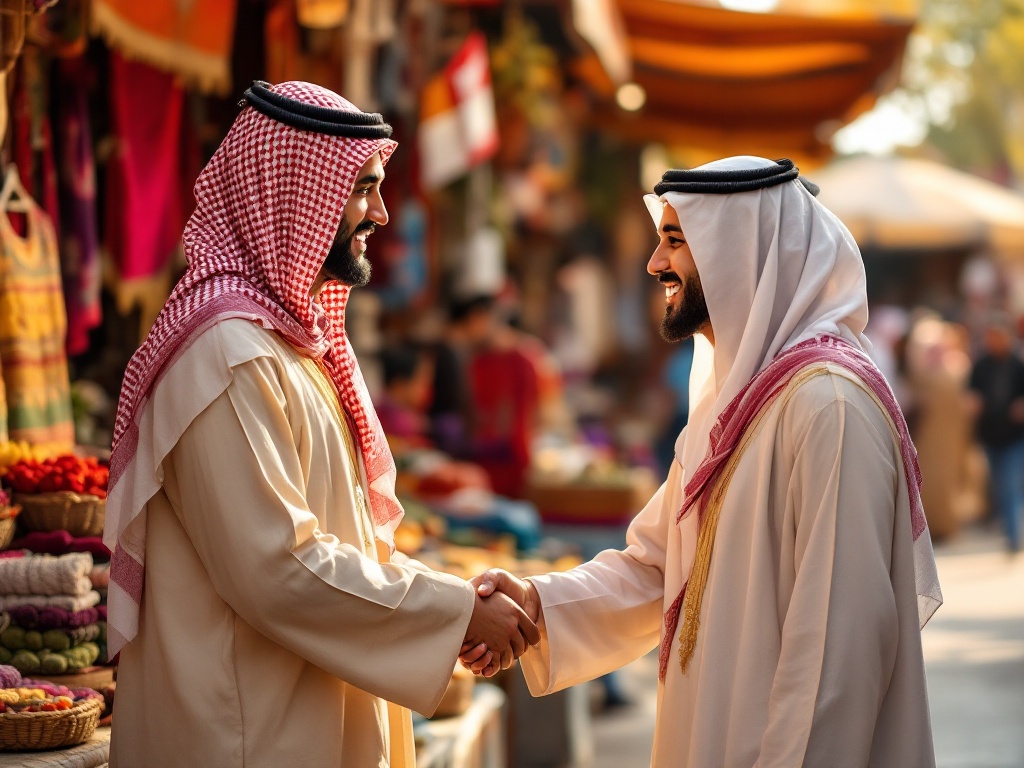Understanding Bahraini Customs and Etiquette
Bahrain is a welcoming country with a rich cultural heritage deeply rooted in Islamic traditions and Arab hospitality. Understanding and respecting local customs will enhance your travel experience and foster positive interactions.

Dress Code
While Bahrain is relatively liberal compared to some neighbors, modesty in dress is appreciated and recommended, especially in public places outside of hotels and private resorts.
- General Public Areas: Both men and women should aim to cover their shoulders and knees. Avoid overly revealing clothing like short shorts, miniskirts, or low-cut tops when visiting malls, markets (souqs), or government buildings.
- Religious Sites: When visiting mosques (like the Al Fateh Grand Mosque), women will be required to cover their heads (a scarf or 'shayla' is usually provided) and wear loose-fitting, non-transparent clothing that covers arms and legs. Men should wear long trousers and shirts with sleeves.
- Hotels and Resorts: Dress codes are generally more relaxed within hotel premises and private beach clubs, where swimwear is acceptable around pools and beach areas.
Dressing respectfully shows consideration for the local culture.
Dress modestly in public areas.
Polite interactions are key.
Greetings and Social Interaction
- Verbal Greetings: Common Arabic greetings like "As-salamu alaykum" (Peace be upon you) and the reply "Wa alaykumu s-salam" (And upon you be peace) are widely appreciated, though English greetings are common.
- Handshakes: Handshakes are common between men. When greeting a Bahraini woman, it is polite for a foreign man to wait and see if she extends her hand first. Some devout Muslim women may prefer not to shake hands with men outside their family.
- Titles: Use titles like "Mr.", "Mrs.", or "Dr." followed by the surname unless invited to use first names.
- Right Hand Usage: Traditionally, the right hand is used for eating, shaking hands, and passing objects, as the left hand is considered unclean in Islamic tradition.
Hospitality
Bahrainis are renowned for their warmth and generosity towards guests.
- Accepting Offers: If invited to someone's home or offered refreshments (like Arabic coffee 'qahwa' and dates), it is polite to accept. Refusing can sometimes be seen as impolite.
- Modest Gifts: If invited to a home, a small gift (like sweets or pastries) is appreciated but not obligatory.
- Removing Shoes: It is customary to remove your shoes before entering a private home or a mosque.
Experience renowned Bahraini hospitality.
Respect the holy month.
Ramadan Etiquette
During the Islamic holy month of Ramadan, Muslims fast from dawn until sunset. Non-Muslim visitors should show extra sensitivity:
- Public Consumption: Avoid eating, drinking, smoking, and chewing gum in public places during fasting hours. This is strictly enforced and considered highly disrespectful.
- Restaurants: Many restaurants will be closed during the day or offer screened-off areas for non-fasters. Hotels usually cater normally to guests.
- Working Hours: Business hours are often shortened during Ramadan.
- Atmosphere: Evenings come alive after sunset with 'Iftar' (breaking the fast) meals and special events.
Other Important Etiquette Points
- Photography: Always ask for permission before photographing people, especially women and families. Avoid photographing government buildings, military installations, and palaces.
- Public Displays of Affection (PDA): Keep public displays of affection between couples discreet.
- Pointing: Avoid pointing directly at people with your finger; use an open hand if gesturing.
- Showing Soles of Feet: Avoid showing the soles of your feet when sitting, as this can be considered disrespectful in Arab culture.
- Business Etiquette: Punctuality is valued. Building personal relationships is often important before getting down to business. Business cards are usually exchanged.
Being mindful of these cultural nuances will contribute to a more positive and respectful interaction during your stay in Bahrain.
Find more practical information in our Bahrain Travel Guide.
Be mindful when taking photos.
